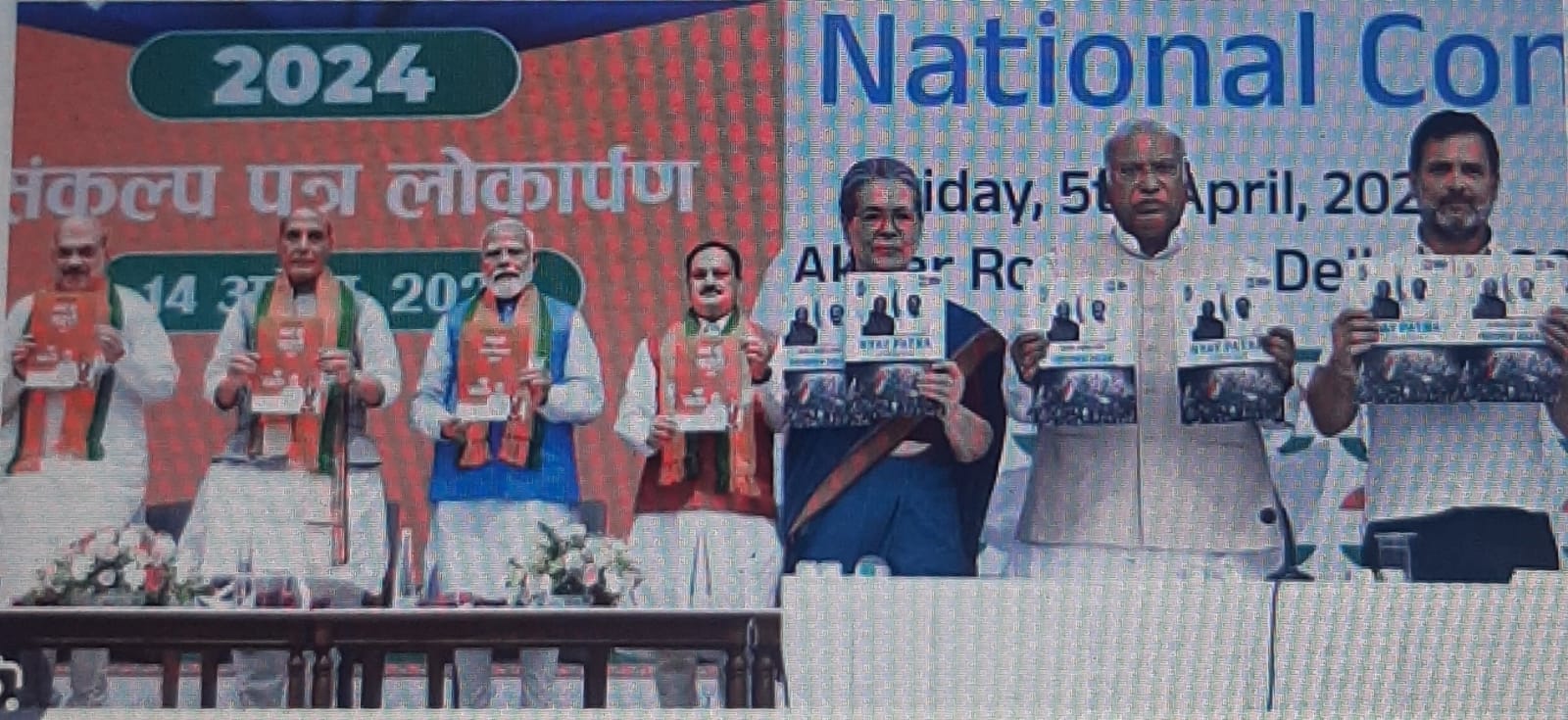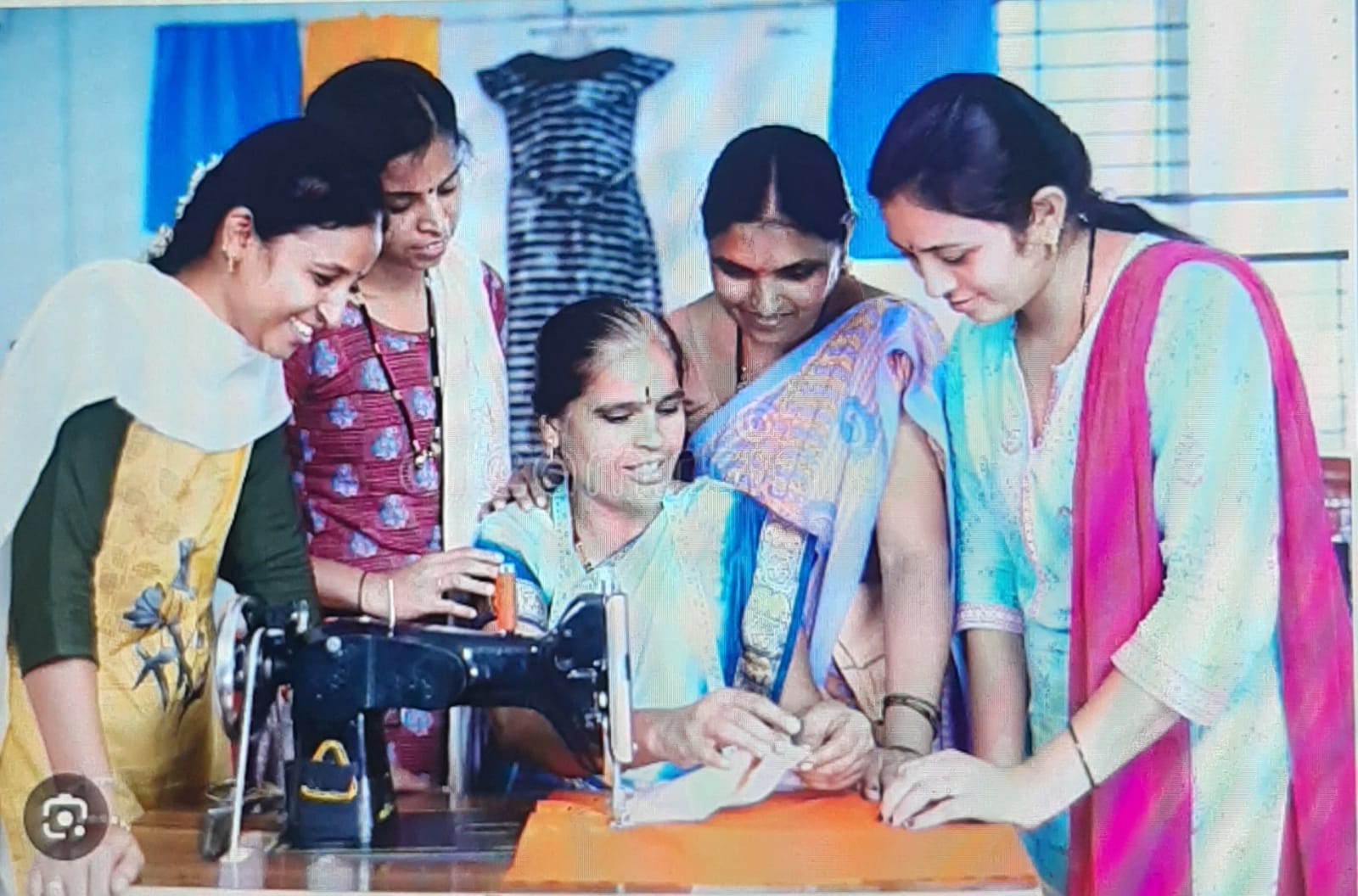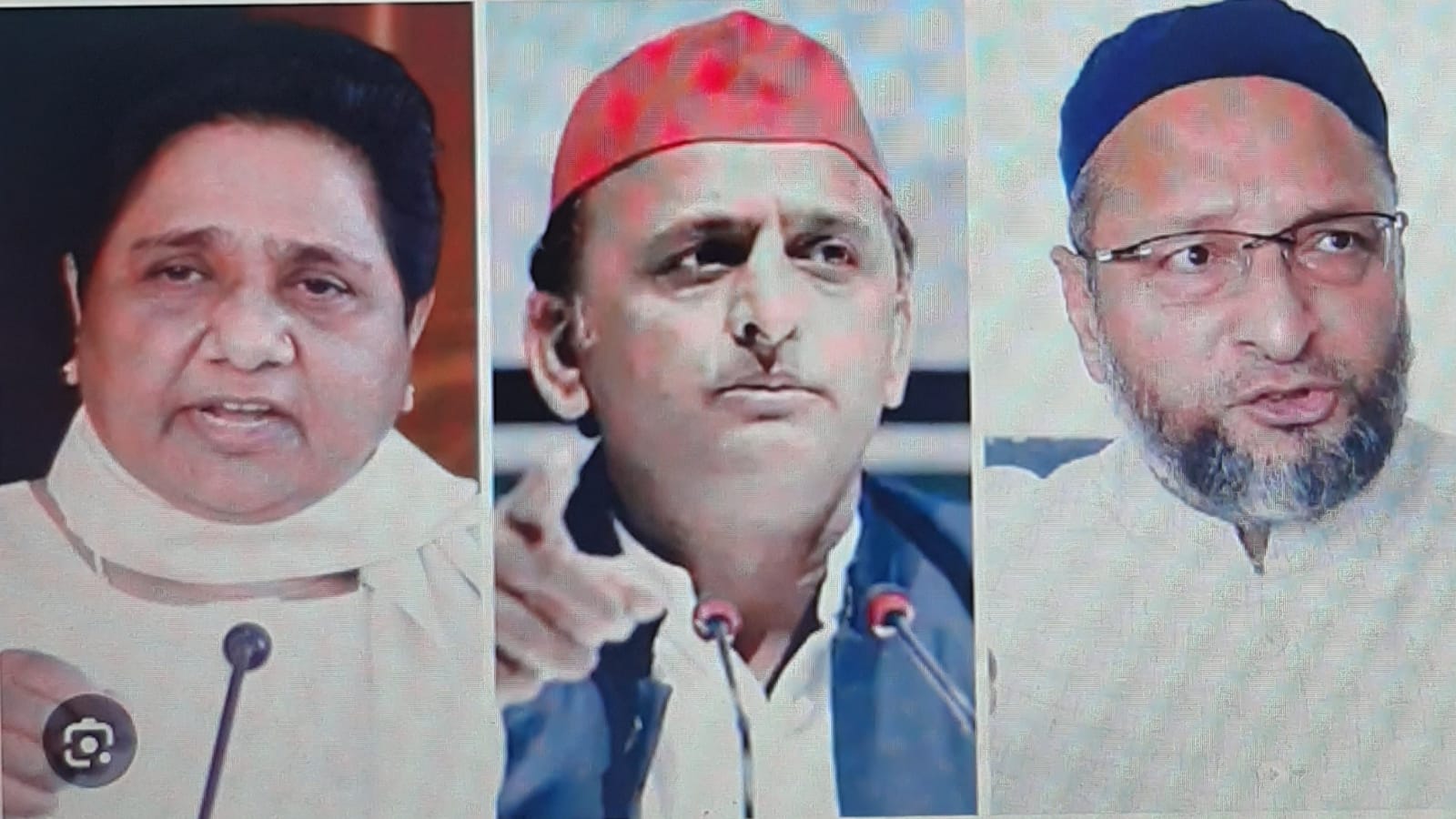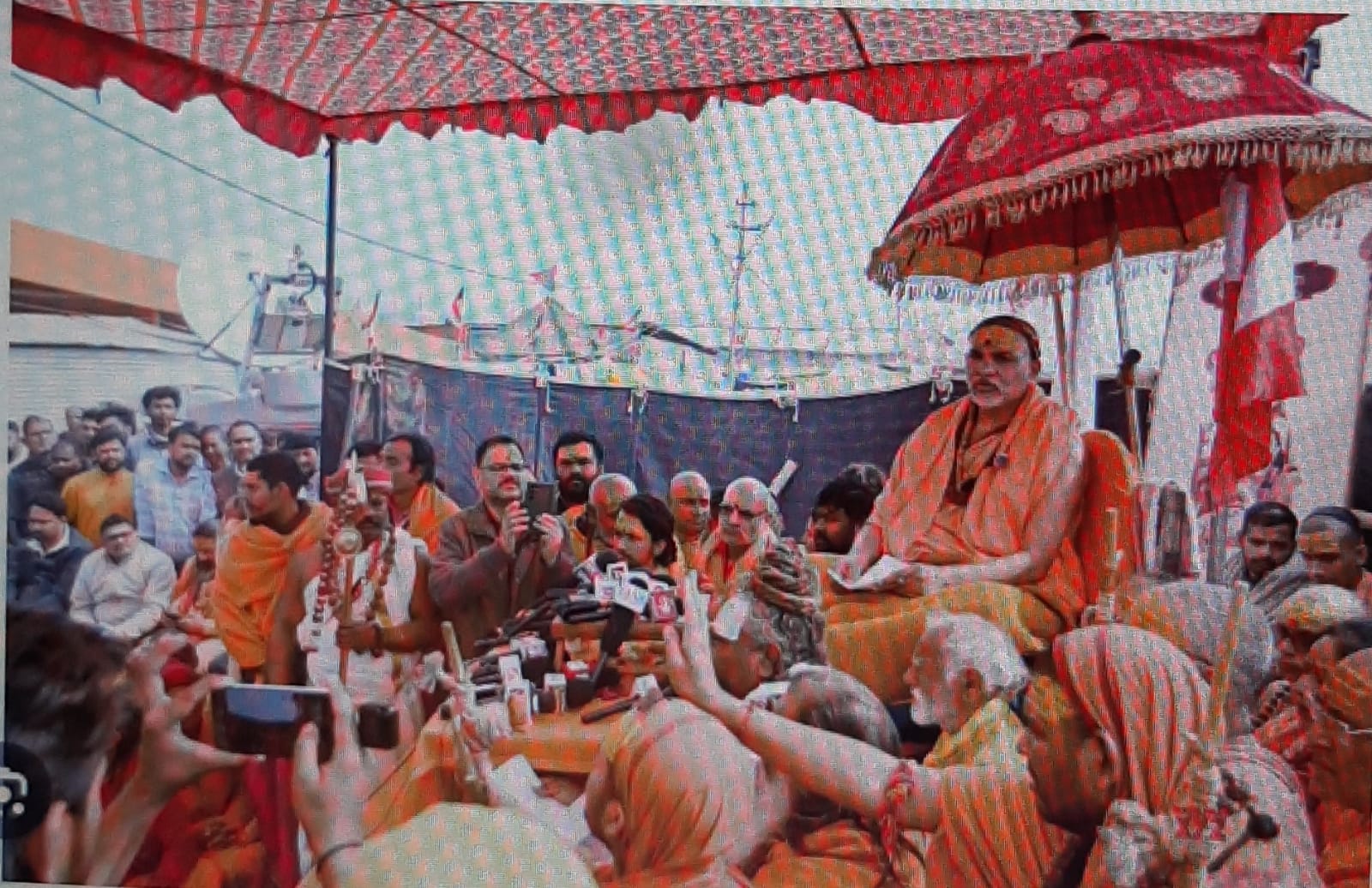
it is time citizens and voters begin to realize that they need to hold political parties accountable for the promises made by them in their election manifestos. And this would include not only the ruling party but also those in the Opposition, writes former IAS officer Sunil Kumar
Political parties seem to be increasingly paying greater attention to formulation of their Election Manifestos with parties highlighting the fact that they sought and received suggestions from x number of citizens and civil society organizations. In the national elections of 2024, followed by the State/UT elections in Haryana, Jharkhand, Maharashtra, Jammu & Kashmir and Delhi, it was observed that the major political parties such as Bhartiya Janata Party (BJP) and the Indian National Congress (INC) took great pains to prepare and release their election manifestos with great fanfare. They also took pains to note what had been promised by their electoral rivals and better them if possible.
Even before the national elections, Shri Narendra Modi, Prime Minister of India had initiated a debate on the culture of distributing ‘freebies’ or ‘chunavi revadi’ as he put it. In his view it was often at a great economic cost to the State and this tendency was avoidable. Leaders of different political parties joined in and even today there is a Public Interest Litigation (PIL) pending in the Supreme Court where petitioners have challenged the culture of promising ‘chunavi revadi’! It is another matter that come elections, each party seems to be competing to ‘out do’ the other. In the recent past, electoral victories of BJP in Madhya Pradesh & Delhi, NDA in Maharashtra and Jharkhand Mukti Morcha in Jharkhand have been attributed to the cash transfer schemes initiated / promised for women voters. If Aam Aadmi Party promised Rs.2100 per month to women in Delhi, BJP stepped in and promised to transfer Rs.2500 per month.
However, the issue in this paper is not what is contained in the Election Manifestos of different political parties but examine the fate of these Election Manifestos after elections are over. Do they remain relevant in governance by the ruling party? Do political parties present their report card periodically before the voters? Do political parties care about implementation of their election manifestos? Do citizens / voters make any attempt to hold the political parties accountable for promises made in their election manifesto?
At present, if one scans the writings in newspapers, periodicals and stories appearing in the electronic and digital media, then it appears that after elections are over and the victors and vanquished determined, election manifestos also retreat from public memory till such time as the next elections appear on the horizon. Forget the general public…most political leaders too seem to forget what promises had been made in the election manifesto. Most MPs and MLAs seem to be oblivious to what had been included in their party manifesto and what needs to be done and in what time frame? At best, it is left to the ‘top party leadership’ of the ruling party to do whatever it can to ensure compliance of the promises made. As for those in the Opposition parties, it seems they have a ‘licence to forget’ their election manifesto as individual MPs and MLAs feel no responsibility towards their party’s election manifesto if their party has not been voted to power!
Based on experience, one can say that these days ruling parties, after they assume power, do ask their Ministers and, through them, the departmental Secretaries to go through the Party’s election manifesto and identify those which may fall in their domain and take steps to implement them. However, after the initial flurry of activity, where Government prepares 100 days Plan of Action, nothing more is heard of them. As Government gets into the groove of ‘governance’, everyone seems to forget till such time as the PMO or the CMO calls for a report within 24 hours. Then mid-night oil is burned to furnish a report, couched in bureaucratese, so that no responsibility can be fixed. Ministers heave a sigh of relief if they are not ‘cornered’ by their political boss… and life goes on. It is only at the time of elections that members of the Election Manifesto drafting committee make some effort to drum up some figures regarding number of election promises fulfilled. There is certainly no periodic report published by any political party which highlights the promise made, the manner in which it has been fulfilled, expenditure incurred and resultant outcome. It’s as if it is time to turn a new leaf with each passing day. What had been promised earlier is best forgotten and time to make (and break) a new promise arises.
If this had not been the case, surely ruling dispensations would have had a lot to explain to the voters and they could not have got away by simply stating that those were ‘chunavi jumlas’ or by just asserting that 85 or 90 percent of the promises have been fulfilled! By this time, searching questions would and should have been addressed to the leaders at the helm of affairs regarding their promise to ‘double farmer’s income by 2022’ or abolish corruption by setting up the institution of Lok Pal in Delhi, to name just a few of the commitments made by different political parties at different points of time.
However, as Indian democracy matures, it is time citizens and voters begin to realize that they need to hold political parties accountable for the promises made by them in their election manifestos. And this would include not only the ruling party but also those in the Opposition. I will explain this with an example taken from the election manifestos of the BJP and the INC relating to strengthening of Panchayats. The INC had promised in it’s Manifesto, inter alia, that they ‘will work with state governments to evolve a formula to devolve funds, including a share of GST revenues, directly to panchayats and municipalities’. Likewise, the BJP had promised that they will take all possible measures to ensure ‘fiscal autonomy for panchayati raj institutions’ to make them sustainable.
In this context it may be pertinent to mention that convenor of Teesri Sarkar Abhiyaan had addressed letters to top leaders of all major political parties listing out measures to strengthen both rural and urban local governments and it included, inter alia, the demand to grant one percent of CGST and SGST to both urban and rural local governments so as to compensate them for the local taxes such as Octroi, which had been subsumed under GST. This measure had been suggested by Dr. Vijay Kelkar, Chairman of Thirteenth Finance Commission and the Election Manifesto of INC clearly included this. The BJP Manifesto which was released subsequently had to albeit promise to take all possible measures to ensure fiscal autonomy of PRIs keeping in mind the specific commitment made by the Congress party. However, in the din surrounding ‘Modi ki Guarantee’ versus ‘Congress ki Guarantee’, this very important transformative commitment made by the Congress party got completely overlooked. It did not figure in a major way in the electoral speeches of either leaders of the Congress party or the BJP. And local government has hardly figured in the election manifestos issued by major political parties in the subsequent State elections even though local government is a State subject and most of systemic improvement promises would be implemented at the State level.
Now that BJP is in power and the INC is the major Opposition party and the NDA Government has presented it’s second budget after the one for 2024-25, it is time to examine the role of both the ruling NDA led by BJP and the INC on what steps they have taken to ensure fulfilment of one of the promises made by them towards strengthening Local Government.
Let us first examine what the ruling dispensation has done in this regard. Even after passage of almost nine months, there is no statement from any functionary in Government indicating whether Government has even initiated any thinking at any level on the subject of granting fiscal autonomy to PRIs. No committee has been formed; nothing communicated to the 16th Finance Commission and there is nothing in the President’s Address or the Budget speech of the Union Finance Minister or even any statement of the Prime Minister, Minister of Panchayati Raj to suggest that Government is serious about ensuring fiscal autonomy of PRIs! Even the Opposition MPs have not asked any question in any House of Parliament regarding what steps Government proposes to take in this regard.
As for the Congress party which included series of promises relating to strengthening local governments as part of it’s commitment to strengthen federalism in the country and improve governance in it’s election manifesto for 2024 Lok Sabha elections, has been largely silent on the subject. Shri P. Chidambaram, Chairman of the Election Manifesto Drafting Committee of Indian National Congress, and a weekly columnist in The Indian Express, has not written even a word about strengthening Local Government in the last nine months. No attempt seems to have been made by the Congress MPs to raise the issue of strengthening local governments in the Parliament or by it’s MLAs in the State Assemblies. The Congress party is in power in three States – Karnataka, Himachal Pradesh and Telangana. It is part of the ruling alliance in Jharkhand. It would have been expected that the State Governments would have at least prepared a discussion paper on the issue of granting a share of CGST and SGST to Local Governments and tabled it in the meeting of the GST Council. It is well understood that it would take some time before a consensus can be built on this issue which would require amendment to the Constitution and lot of capacity building exercise at the level of Local Governments. It would have given the main Opposition party lot of brownie points if any such initiative had been taken or is taken.
Action or inaction of the major political parties is undertandable given the fact that they are used to doing politics in a certain way. But the worrying fact is that even the Local Government functionaries do not seem to have understood the import of these commitments made by the two major political parties in their election manifesto. One has not come across any statement by any elected representative of any Local Government where they have questioned why no action is being taken on such an important commitment made by them. Likewise, citizen forums, civil society organizations working with Local Governments have also been, by and large, silent on this critical issue. This silence is deafening.
It is not as if this silence is only in respect to some commitments made in the election manifestos. Perhaps, other than those relating to individual beneficiaries and big ticket infrastructure projects, most other commitments are conveniently forgotten. Hence, no attempt is made to bring about systemic changes which will improve governance system in the country.
It is high time citizens begin to ask searching questions of all those who are in politics – right from the Gram Panchayat to Parliament level. The day citizens begin to demand accountability from their elected representatives and contestants, then things would begin to improve. The practice of expressing ‘voter sovereignty’ once in five years at the time of elections is not enough to ensure deepening of democracy, adherence to the law and spirit of the Constitution and delivery of ‘good governance’. A good point to make a beginning in this regard is with promises made by the political parties in their election manifestos.
Before concluding, a point to ponder is whether the British practice of having a ‘shadow cabinet’ would have been more impactful in public policy making in India? As then the shadow cabinet would have possibly devoted some time to working out the mechanism for implementing the promises made in their election manifesto. Otherwise, even with best intentions, political parties lose much precious time in working out the administrative details for implementing their promises and that, more often than not, shows them up in poor light before citizens and voters.
(Sunil Kumar is a Visiting Faculty in Gokhale Institute of Politics & Economics and a former civil servant. Views expressed are personal.)









